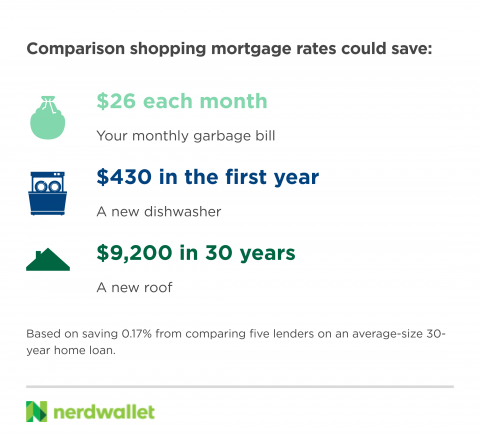But the loan likewise is due if the borrower sells the home or transfer to another home and leas the home that is the security for the reverse mortgage. Generally the home is offered and the sale proceeds are used to pay the reverse mortgage. However if the homeowner or the homeowner's heirs have adequate funds, they can utilize those funds to pay the reverse home loan and keep the house.
When the loan balance is more than the sale earnings of the house, the federal government repays the lending institution for the difference. The house owner's estate and successors do not have to make up the difference, when the loan was federally guaranteed. It's likely that the heirs or estate of the property owner will get little or no equity from the sale of the home in many cases.
The executor and the successors likewise need to be told if the reverse mortgage is federally-insured so they will know the lending institution can't seek from them anything beyond the sale earnings of the house. When the sale continues exceed the outstanding loan balance, the estate or the successors get the excess amount.
The loan profits can be utilized for any costs but generally are used to pay for regular monthly living costs, house repair and maintenance, or long-term care offered in the house. The debtor's credit worthiness does not matter, since the house equity backs the loan. The customer only needs to show that his/her income suffices to pay the home's taxes and insurance coverage and maintain the house.
The Best Guide To How Do Reverse Mortgages Work Example
This makes reverse mortgages an enticing option for elders who do not qualify for a conventional home equity loan or can not make month-to-month payments. Potential debtors must know that there are fees and charges for getting a reverse mortgage, and these generally total up to 1% to 4% of the quantity of the loan.
It is necessary to look around among lending institutions before selecting a reverse mortgage. The terms of wesley corporation reverse home mortgages can vary significantly among lenders. You might wind up with considerably more money by utilizing one loan provider instead of another. In next week's issue of Retirement Watch Weekly, I'll discuss the various types of reverse mortgages and the benefits and issues of each one.
That's why the results of my year-long examination are so essential for each AMERICAN to get a deal with on. Click on this link now to read my brand-new findings and secure yourself from the monetary devastation can be found in 2021.
A reverse mortgage works extremely differently from a standard mortgage: Instead of paying to your loan provider, your loan provider pays to you. A reverse home mortgage gives homeowners age 62 or older a flexible method to access their home's equity as their living requires change. A reverse home mortgage is a specific home mortgage that permits homeowners who are 62 or older to convert their home equity into money.
Indicators on Which Type Of Organization Does Not Provide Home Mortgages? You Need To Know
In time, your loan balance grows and your equity shrinks. With a standard home mortgage, however, you reduce your balance with each payment and your equity increases for many years. The most common type of reverse home loan is a House Equity Conversion Mortgage (HECM) backed by the Federal Housing Administration (FHA).
For the functions of this short article, we'll concentrate on HECMs. A reverse home loan provides you access to your house's equity as you age. who has the best interest rates on mortgages. Reverse home mortgage requirements are likewise different from those of a forward home mortgage. Here's a rundown of how a reverse mortgage works: The older you are when you get your reverse home mortgage, the more equity you have access to.
Older debtors on repaired earnings eliminate the expenditure of a monthly home mortgage payment. You will not go through the debt-to-income (DTI) ratio or credit history requirements of regular mortgages. However, you should pay ongoing expenses like property taxes, house owners insurance and maintenance, or you could run the risk of losing your house to foreclosure - how does chapter 13 work with mortgages.
However, the interest isn't tax-deductible till you offer the house or settle the reverse home mortgage. Reverse home loans were produced to permit senior citizens to "age in place." If you don't live there full-time or need to move into an assisted living center, the lending institution might foreclose. The FHA requires that you meet a HUD-certified counselor to ensure you understand all of the advantages and disadvantages of reverse home mortgages.
The 6-Minute Rule for Which Of The Following Is Not True About Reverse Annuity Mortgages?
Reverse mortgage guidelines restrict just how much equity you can borrow, so it's not likely you'll wind up underwater. Nevertheless, if you do, home mortgage insurance will cover any loan balance greater than the house's value. A few of the downsides of reverse home loans are pricey charges. Reverse mortgage lending institutions can charge up to $6,000 for origination costs, and the upfront mortgage insurance coverage premiums of 2% of the house's value are greater than a lot of forward home loans.
You can choose from one or a mix of numerous payment options to gain access to home equity with a reverse mortgage. Reverse home loan rate of interest are typically adjustable rates, which suggests they may rise or tip over time, which can diminish your equity quicker in a rising-rate environment. This option includes one large payment after your reverse loan closes.

Also called the "period" choice, you can select regular monthly payments for as long as you or a co-borrower lives in the house as your main house If you simply require additional earnings for a few years, this choice allows you to select the number of months you'll receive routine monthly payments.

You can access the line as required until you have actually consumed the readily available balance. You can select a combination of monthly payments and a line of credit while you or a co-borrowing spouse are still residing in your home. A mix of the line of credit, which can be included for extra funds in case you need more money, and term payments.
The Buzz on What Is The Interest Rate For Mortgages Today
HECMs are guaranteed by the FHA. There are no limitations on what HECM http://louisyxjc597.timeforchangecounselling.com/4-simple-techniques-for-how-does-bank-know-you-have-mutiple-fha-mortgages funds can be used for. Some state and regional federal government agencies may offer these types of reverse home loans, but the funds can only be used to satisfy specific requirements such as fixing a home or paying past-due real estate tax.
Private companies might use their own reverse home loans at loan quantities greater than HECM loan Learn here limits. You may likewise be able to get a larger preliminary advance from a proprietary reverse home mortgage, however these loans likewise will not have the federal support from the FHA and could be more expensive. Pros You'll have more options to use your house equity as your requirements alter You can supplement a portion of your retirement income You can use the reverse home loan funds as you desire You won't leave a monetary concern to your beneficiaries Your eligible non-borrowing partner can remain in the home after you die or leave You might lower your regular monthly housing expenses Fools Your loan could be foreclosed if you don't reside in the home full time Your loan balance increases in time Your equity drops over time You may reduce the quantity you're eligible to get for other advantages You're lowering the inheritance worth of your house You'll pay more for reverse mortgage closing expenses Financial abuse of seniors has ended up being a multibillion-dollar issue in the United States.